
Anyone who knows me at all, understands that am an ardent Patriot and proud Veteran of the United States Air Force. I love America with all my heart and believe that though we do have our problems, we are still the greatest nation on earth. As said so eloquently by one of my own personal heroes, President Ronald Reagan, “A troubled and afflicted mankind looks to us, pleading for us to keep our rendezvous with destiny; that we will uphold the principles of self-reliance, self-discipline, morality, and, above all, responsible liberty for every individual that we will become that shining city on a hill.”
My time is service was during peace time, so I have not personally seen the horrors of war. However, I do understand deeply that without a strong and ready military, during times of peace, there would be far more times of war. We must remember (to quote Barry Goldwater) that we only attain peace only through strength. In this post, I would like to thank and honor those I’m proud to share the title of Veteran with. Do to my NaNoWriMo commitment, I was unable to write my own post. The information below was borrowed from About.com: US Military. I hope you enjoy it and remember, if you like your freedom, thank a vet (I don’t mean myself)!
~~~
Many Americans mistakenly believe that Veterans Day is the day America sets aside to honor American military personnel who died in battle or as a result of wounds sustained from combat. That's not quite true. Memorial Day is the day set aside to honor America's war dead.
Veterans Day, on the other hand, honors ALL American veterans, both living and dead. In fact, Veterans Day is largely intended to thank LIVING veterans for dedicated and loyal service to their country. November 11 of each year is the day that we ensure veterans know that we deeply appreciate the sacrifices they have made in the lives to keep our country free.
Armistice Day:
To commemorate the ending of the "Great War" (World War I), an "unknown soldier" was buried in highest place of honor in both England and France ( (in England, Westminster Abbey; in France, the Arc de Triomphe). These ceremonies took place on November 11th, celebrating the ending of World War I hostilities at 11 a.m., November 11, 1918 (the 11th hour of the 11th day of the 11th month). This day became known internationally as "Armistice Day".
In 1921, the United States of America followed France and England by laying to rest the remains of a World War I American soldier -- his name "known but to God" -- on a Virginia hillside overlooking the city of Washington DC and the Potomac River. This site became known as the "Tomb of the Unknown Soldier," and today is called the "Tomb of the Unknowns." Located in Arlington National Cemetery, the tomb symbolizes dignity and reverence for the American veteran.
In America, November 11th officially became known as Armistice Day through an act of Congress in 1926. It wasn't until 12 years later, through a similar act that Armistice Day became a national holiday.
The entire World thought that World War I was the "War to end all wars." Had this been true, the holiday might still be called Armistice Day today. That dream was shattered in 1939 when World War II broke out in Europe. More than 400,000 American service members died during that horrific war.
Veterans Day:
In 1947, Raymond Weeks, of Birmingham Ala., organized a "Veterans Day" parade on November 11th to honor all of America's veterans for their loyal and dedicated service. Shortly thereafter, Congressman Edward H. Rees (Kansas) introduced legislation to change the name of Armistice Day to Veterans Day in order to honor all veterans who have served the United States in all wars.
In 1954, President Eisenhower signed a bill proclaiming November 11 as Veterans Day, and called upon Americans everywhere to rededicate themselves to the cause of peace. He issued a Presidential Order directing the head of the Veterans Administration (now called the Department of Veterans Affairs), to form a Veterans Day National Committee to organize and oversee the national observance of Veterans Day.
Congress passed legislation in 1968 to move Veterans Day to the fourth Monday in October. However as it became apparent that November 11th was historically significant to many Americans, in 1978, Congress reversed itself and returned the holiday to its traditional date.
Veterans Day National Ceremony:
At exactly 11 a.m., each November 11th, a color guard, made up of members from each of the military branches, renders honors to America's war dead during a heart-moving ceremony at the Tomb of the Unknowns in Arlington National Cemetery.
The President or his representative places a wreath at the Tomb and a bugler sounds Taps. The balance of the ceremony, including a "Parade of Flags" by numerous veterans service organizations, takes place inside the Memorial Amphitheater, adjacent to the Tomb.
In addition to planning and coordinating the National Veterans Day Ceremony, the Veterans Day National Committee supports a number of Veterans Day Regional Sites. These sites conduct Veterans Day celebrations that provide excellent examples for other communities to follow.
Veterans Day Observance:
Veterans Day is always observed on November 11, regardless of the day of the week on which it falls. The Veterans Day National Ceremony is always held on Veterans Day itself, even if the holiday falls on a Saturday or Sunday. However, like all other federal holidays, when it falls on a non-workday -- Saturday or Sunday -- the federal government employees take the day off on Monday (if the holiday falls on Sunday) or Friday (if the holiday falls on Saturday).
Federal government holiday observance (for federal employees, including military) is established by federal law. 5 U.S.C. 6103 establishes the following public holidays for Federal employees: New Year's Day, Birthday of Martin Luther King, Jr., Washington's Birthday (President's Day), Memorial Day, Independence Day, Labor Day, Columbus Day, Veterans Day, Thanksgiving Day, and Christmas Day.
This federal law does not apply to state and local governments. They are free to determine local government closings (including school closings) locally. As such, there is no legal requirement that schools close of Veterans Day, and many do not. However, most schools hold Veterans Day activities on Veterans Day and throughout the week of the holiday to honor American veterans.
Veterans Day Around the World:
Many other countries honor their veterans on November 11th of each year. However, the name of the holiday and the types of ceremonies differ from the Veterans Day activities in the United States.
Canada, Australia, and Great Britain refer to their holidays as "Remembrance Day." Canada and Australia observe the day on November 11, and Great Britain conducts their ceremonies on the Sunday nearest to November 11th.
In Canada, the observance of "Remembrance Day" is actually quite similar to the United States, in that the day is set aside to honor all of Canada's veterans, both living and dead. One notable difference is that many Canadians wear a red poppy flower on November 11 to honor their war dead, while the "red poppy" tradition is observed in the United States on Memorial Day.
In Australia, "Remembrance Day" is very much like America's Memorial Day, in that its considered a day to honor Australian veterans who died in war.
In Great Britain, the day is commemorated by church services and parades of ex-service members in Whitehall, a wide ceremonial avenue leading from London's Parliament Square to Trafalgar Square. Wreaths of poppies are left at the Cenotaph, a war memorial in Whitehall, which was built after the First World War. At the Cenotaph and elsewhere in the country, a two-minute silence is observed at 11 a.m., to honor those who lost their lives in wars.
Have You Hugged Your Veteran Today?
One of the most personal and meaningful Veterans Day activities for people is to send notes or cards to hospitalized veterans or those living in veterans homes. Or, better yet, visit a veteran in a local veterans hospital or veterans home. The best way to have a "happy Veterans Day" is to do something special to make a veteran happy.
My time is service was during peace time, so I have not personally seen the horrors of war. However, I do understand deeply that without a strong and ready military, during times of peace, there would be far more times of war. We must remember (to quote Barry Goldwater) that we only attain peace only through strength. In this post, I would like to thank and honor those I’m proud to share the title of Veteran with. Do to my NaNoWriMo commitment, I was unable to write my own post. The information below was borrowed from About.com: US Military. I hope you enjoy it and remember, if you like your freedom, thank a vet (I don’t mean myself)!
~~~
Many Americans mistakenly believe that Veterans Day is the day America sets aside to honor American military personnel who died in battle or as a result of wounds sustained from combat. That's not quite true. Memorial Day is the day set aside to honor America's war dead.
Veterans Day, on the other hand, honors ALL American veterans, both living and dead. In fact, Veterans Day is largely intended to thank LIVING veterans for dedicated and loyal service to their country. November 11 of each year is the day that we ensure veterans know that we deeply appreciate the sacrifices they have made in the lives to keep our country free.
Armistice Day:
To commemorate the ending of the "Great War" (World War I), an "unknown soldier" was buried in highest place of honor in both England and France ( (in England, Westminster Abbey; in France, the Arc de Triomphe). These ceremonies took place on November 11th, celebrating the ending of World War I hostilities at 11 a.m., November 11, 1918 (the 11th hour of the 11th day of the 11th month). This day became known internationally as "Armistice Day".
In 1921, the United States of America followed France and England by laying to rest the remains of a World War I American soldier -- his name "known but to God" -- on a Virginia hillside overlooking the city of Washington DC and the Potomac River. This site became known as the "Tomb of the Unknown Soldier," and today is called the "Tomb of the Unknowns." Located in Arlington National Cemetery, the tomb symbolizes dignity and reverence for the American veteran.
In America, November 11th officially became known as Armistice Day through an act of Congress in 1926. It wasn't until 12 years later, through a similar act that Armistice Day became a national holiday.
The entire World thought that World War I was the "War to end all wars." Had this been true, the holiday might still be called Armistice Day today. That dream was shattered in 1939 when World War II broke out in Europe. More than 400,000 American service members died during that horrific war.
Veterans Day:
In 1947, Raymond Weeks, of Birmingham Ala., organized a "Veterans Day" parade on November 11th to honor all of America's veterans for their loyal and dedicated service. Shortly thereafter, Congressman Edward H. Rees (Kansas) introduced legislation to change the name of Armistice Day to Veterans Day in order to honor all veterans who have served the United States in all wars.
In 1954, President Eisenhower signed a bill proclaiming November 11 as Veterans Day, and called upon Americans everywhere to rededicate themselves to the cause of peace. He issued a Presidential Order directing the head of the Veterans Administration (now called the Department of Veterans Affairs), to form a Veterans Day National Committee to organize and oversee the national observance of Veterans Day.
Congress passed legislation in 1968 to move Veterans Day to the fourth Monday in October. However as it became apparent that November 11th was historically significant to many Americans, in 1978, Congress reversed itself and returned the holiday to its traditional date.
Veterans Day National Ceremony:
At exactly 11 a.m., each November 11th, a color guard, made up of members from each of the military branches, renders honors to America's war dead during a heart-moving ceremony at the Tomb of the Unknowns in Arlington National Cemetery.
The President or his representative places a wreath at the Tomb and a bugler sounds Taps. The balance of the ceremony, including a "Parade of Flags" by numerous veterans service organizations, takes place inside the Memorial Amphitheater, adjacent to the Tomb.
In addition to planning and coordinating the National Veterans Day Ceremony, the Veterans Day National Committee supports a number of Veterans Day Regional Sites. These sites conduct Veterans Day celebrations that provide excellent examples for other communities to follow.
Veterans Day Observance:
Veterans Day is always observed on November 11, regardless of the day of the week on which it falls. The Veterans Day National Ceremony is always held on Veterans Day itself, even if the holiday falls on a Saturday or Sunday. However, like all other federal holidays, when it falls on a non-workday -- Saturday or Sunday -- the federal government employees take the day off on Monday (if the holiday falls on Sunday) or Friday (if the holiday falls on Saturday).
Federal government holiday observance (for federal employees, including military) is established by federal law. 5 U.S.C. 6103 establishes the following public holidays for Federal employees: New Year's Day, Birthday of Martin Luther King, Jr., Washington's Birthday (President's Day), Memorial Day, Independence Day, Labor Day, Columbus Day, Veterans Day, Thanksgiving Day, and Christmas Day.
This federal law does not apply to state and local governments. They are free to determine local government closings (including school closings) locally. As such, there is no legal requirement that schools close of Veterans Day, and many do not. However, most schools hold Veterans Day activities on Veterans Day and throughout the week of the holiday to honor American veterans.
Veterans Day Around the World:
Many other countries honor their veterans on November 11th of each year. However, the name of the holiday and the types of ceremonies differ from the Veterans Day activities in the United States.
Canada, Australia, and Great Britain refer to their holidays as "Remembrance Day." Canada and Australia observe the day on November 11, and Great Britain conducts their ceremonies on the Sunday nearest to November 11th.
In Canada, the observance of "Remembrance Day" is actually quite similar to the United States, in that the day is set aside to honor all of Canada's veterans, both living and dead. One notable difference is that many Canadians wear a red poppy flower on November 11 to honor their war dead, while the "red poppy" tradition is observed in the United States on Memorial Day.
In Australia, "Remembrance Day" is very much like America's Memorial Day, in that its considered a day to honor Australian veterans who died in war.
In Great Britain, the day is commemorated by church services and parades of ex-service members in Whitehall, a wide ceremonial avenue leading from London's Parliament Square to Trafalgar Square. Wreaths of poppies are left at the Cenotaph, a war memorial in Whitehall, which was built after the First World War. At the Cenotaph and elsewhere in the country, a two-minute silence is observed at 11 a.m., to honor those who lost their lives in wars.
Have You Hugged Your Veteran Today?
One of the most personal and meaningful Veterans Day activities for people is to send notes or cards to hospitalized veterans or those living in veterans homes. Or, better yet, visit a veteran in a local veterans hospital or veterans home. The best way to have a "happy Veterans Day" is to do something special to make a veteran happy.







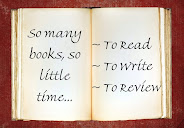

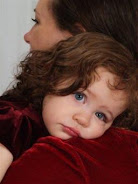
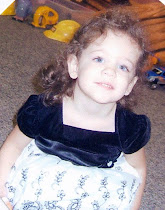



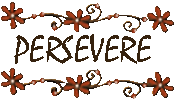


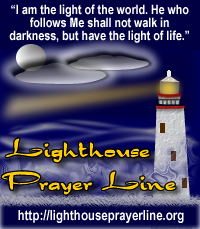

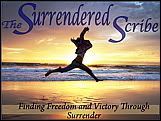
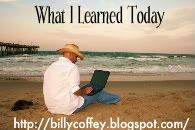












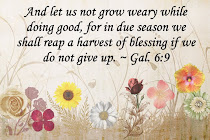






6 comments:
On the 11th Day of the 11th month each year, Americans come together to honor those in uniform, the ones who sacrificed for our nation, on Veterans Day. As a veteran of the Iraq and Afghanistan, War on Terror, I urge everyone to take this day to not just thank a veteran, but to talk with veterans. Learn about how our experiences have shaped our lives and what issues we face as we make our transitions back to civilian life. I would like to explain my side of the story, my own experience.
When I joined the military I was a young, confused kid, who did not know much about life, due to being sheltered for most of my life by my over protective parents. I did not know much about the war, just that I was enraged at the hatred those terrorists had for all Americans and me. I wanted to help my country, to protect it at all cost, even giving up my life to do so. It may sound funny but when I initially tried to enlist in the military, I was to be a military post-man, but the job had already been taken. Since I am color-blind, I wasn’t able to have a range of opportunities in the military. My placement was therefore in Mortuary Affairs Specialist. I felt that I grew up quicker in my years in service than most people do in their whole lifetime.
I was nineteen years old on February 8th, 2002. It was kind of cold for Phoenix as I reached the Airport headed to Fort Jackson, in South Carolina for basic training. Upon reaching Fort Jackson, referred by some in the service as relaxant Jackson, I found that the life I had chosen would not be as easy as I thought. Those first couple of days I got a hair cut, issued uniforms, and learned the waiting line for training was long. During this time, since 9/11, there was a mass influx of new recruits; the Army had problems finding them units to train in. For me I was lucky kind of, since I had a school date that did not come around very often, they tried to offer me another job, but I turn them down, I was shipped from Fort Jackson, then to Fort Lenderwood Missionary. The Ozark Mountains are cold and during winter, it was unbearable. It was an extreme change for me because I was mostly familiar with the hot weather in Phoenix, AZ. Exercising and running in extreme weather with being out shape was horrible. There was no special treatment for anyone but the drill sergeants made me work twice as hard. The treatment I received was something similar to a movie, where the fat kid got picked on and abused, but it was some thing I needed in order to become who I need to be. Despite this, I worked hard, did everything I was ordered to do, and eventually I graduated from boot camp with a new physique. During graduation, my fellow recruits honored me with “The Most Changed Person” reward, the Order of the Dragoon.
I was off to my next challenge, training for my MOS. When I reached Fort Lee, Virginia, I missed my start date and had to wait for the next one. This meant that I couldn’t get a pass to go anywhere; I had to just sit at the barracks, clean the floors, and do KP duty. After awhile this routine got incommodious. I was so happy on Memorial Day 2002, because the next day I was scheduled to start school. Then all of a sudden, I had horrible stomach pains, and could not figure what it was. So I was sent me off to the ER, the doctors initially diagnosed appendix problems. The one-hour surgery was then scheduled immediately, however it took five hours to complete. Apparently, my appendix had been ruptured for over a month including basic training. The surgeons said I am so lucky to be alive. I got a month off to recover and relax. When I got back to Fort Lee, I had to wait another month for class, so eventually when I got to school; I did my best to learn about my job and almost graduated at the top of my class. The reason why I did not graduate at the top of my class was due to my stomach muscles not fully recovering, which made doing sit-ups very hard. I did it because I wanted to join my unit at Fort Lee.
My feelings of excitement and wanting to serve were still in tact even after months of prolong waiting and recovery. In order to be all that I could be, to be the best, I exceed my own abilities by 120%. The mindset I had, came a long way (physically from Phoenix and mentally from the first story I heard about the terrorist attacks), I had really changed for the better. In the first year, I received my first (minor) medal, the Army Achievement Medal. With this acknowledgement from the Army, I wanted to speed up my deployment overseas to Afghanistan, but that wasn’t going to happen until March 18th 2003. According to orders, my team that I was assigned to from my unit wasn’t schedule to arrive in Iraq first. Instead, I worked in the Theater Mortuary Affairs Evacuation Point, a place that went nonstop for the first three months.
Sleep was limited to when I did not hear a helicopter, and when body’s slowed down coming in. In the states I had worked at the Richmond Morgue, but war was different. Instead of just seeing some one you did not know in the states, in Kuwait you learn to know every one, due to them wearing the same uniform, and inventorying all their personal effects, you knew who they wear when they left. Not only was our job to process Americans, but we also helped process British, and any other Allies. During this time I saw the mistakes we made, such as shooting British helicopter down with Sam missiles, and killing Brazilin journalist when we hit the wrong building, during that time I saw the horrors that mankind was possible of. I start experiences, problems, and tried to seek medical help, but I was deferred and told I would be fine. My excitement had come to an end, and I start to get in trouble, pretty soon my 1st Sgt, thought that I was not experiencing enough of the war, so he sent me to the Iraq, Camp Alsad. In Camp Alsad, was slow, but became difficult. Some of the soldiers I ate with at the chow hall, and knew were head on a rest and relaxation mission, but instead of making it, their helicopter was shot down. My team had to go clean the site, recover the bodies, and inventory their belongings. Man life is tough, but even tougher if you know the people. There were two other tough missions. The first were, when three Special Forces soldiers had been killed, when they were given orders not to shoot into a crowd even if they were receiving fire, not only did we have to process their bodies, but we also had to process the bodies of the people who had killed them. We are mortuary affairs first, and as such we have a moral obligation not to look at uniform, or lack of one, but to look at the person and understand their journey had come to a end, and it was our job to treat them with respect because every one has family and friends that care for them, it was not are job to judge right or wrong, which is very hard. The second tough mission was when we went with a convoy head to a site, that they had reportedly killed Sadam Husain, but in fact the compound was filled with animals and women and children. I do not think the Air Force meant to kill them, they were trying to do there job in following cell phone singles, and when they split, they went after the most likely target. On this mission two things had happened. One back in Alsad I was having bad night terrors, but the person in charge of my team figured the answer was not sending me back, but instead was to put me on night duty, and to change the location I slept on, in the location I was, this almost spelled disaster for me and my friend, when I woke up and started to scream at the top of my lungs, the people sleeping around the truck react and were about to shoot in the back of the truck, when my Sgt yelled stop he is just dreaming, oh thank god. The second thing is as I stated before, we are trained to respect the dead, and their belongings. This did not transfer to the people there, instead they were ordered to bury everything, destroy all evidence and move on. That pretty much covers Iraq.
When I got back to the states, I faced many hardships under the care of the Army. I am like millions of other veterans dealing with mental and physical scars of war. Most Americans will never know about these issues because it is not covered in the news or articles. The Army has become a two-sided issue for me; it was once a place where I wanted to succeed at being a great solider and fight for our rights and our country. Now that I came home I am still fighting another battle, however, this fight, I fight alone. I am trying to cope with sudden flashbacks, traumatizing combat events, hyper-vigilance to the recurrence of danger, feelings of numbness, low self-esteem, rage, and lapses in concentration. All of these have caused me to descend in my quality of life. I thought the Army and my unit would continue to care for me, treat me as a fellow solider, and assist me with finding resources for coping and healing. However, this was not the case, my unit classified me as a troublemaker, an unfit solider. As a result, they discharged me out of the Army abruptly without taking responsibility for the causes of my PTSD illnesses. Like other soldiers, I tried to reach out for help but once the system failed, I tried to commit suicide twice during my service. Luckily, both times, one of my few friends stopped me. This incident put me in a mental hospital involuntarily, where they doped me up on strong medicines, and no one cared to seek the reasons behind the action. I wasn’t allowed to receive my care at the Army hospital, because if procedures were followed, there would have been a long investigation and no one wanted to take the time to take care of their wounded soldiers with PTSD. Instead, I was discharged immediately with personality disorder. This seems to be the common practice for the Army, not just in my case but also 20,000 other veterans. At 5 P.M. September 16, 2004, my last official orders from the Army were, TO GET OUT!! Heavily medicated, I received my car keys, and was told to drive over 5000 miles, all the way home to Phoenix, Arizona. My feelings that proscribed afterwards are indescribable.
Even though I am still in my own body, this whole experience has shaped my life. Following my physical return home to Phoenix, AZ, I, however, didn’t return home with my state of mentality. My homecoming wasn’t what I imagined, that is because it was based on tv and movies I’ve seen about returning soldiers as hero’s. I became hospitalized time and time again.
Don’t worry, my story gets better and does have a great beginning. This new chapter in my life begins with the chance meeting the love of my life, my wife. With her continued support, I am able to handle some things on my own. A great support system, love, understanding, and patience, is what I think all soldiers should have and receive upon their return home. After all, the important issue is that we are all humans! With the good and the bad, we will always have our memories.
So on this Veterans Day and every day the best way to honor our veterans is to connect with them. So please remember and honor our fellow humans, our veterans. Without recognition from our family and friends, it doesn’t seem like all of our efforts make a difference. Many of us new veterans are being left behind, we have honored you by defending your rights, and all we ask is to welcome us home.
Sincerely,
Joshua C. Poulsen
Iraq and Afghanistan Veteran
Thank you for that post, Tracy.
And thank you for your story, as well as for your service, Joshua!
Hi Tracy, just wanted to say thank you for serving this country!
Incredible reminder, Tracy, and WOW, Joshua, you moved my soul! Thank you for serving our country.
Thank you Tracy. And Joshua.
Great post, Tracy.
Thank you for a wonderful tribute to those who have and those who now fight to protect our country.
Post a Comment